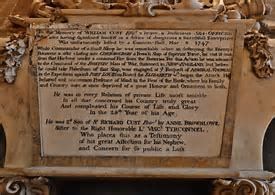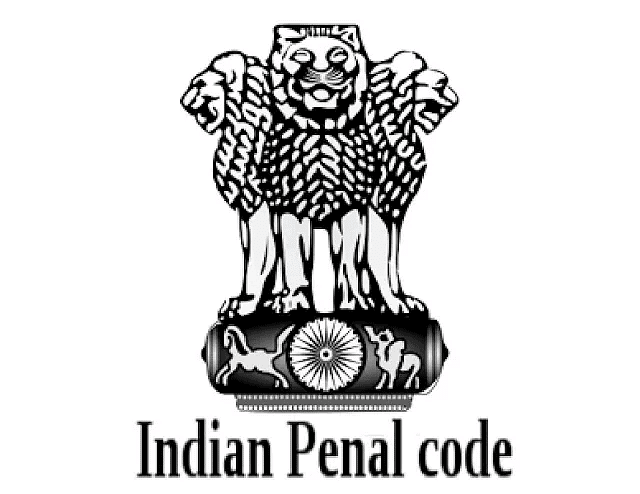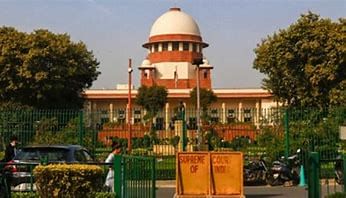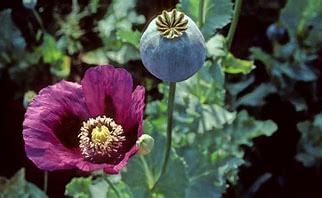UPSC Daily Current Affairs- 25th January 2024 | Current Affairs & Hindu Analysis: Daily, Weekly & Monthly PDF Download
| Table of contents |

|
| GS-I |

|
| SUBHAS CHANDRA BOSE |

|
| Grantham Inscriptions |

|
| GS-II |

|
| Pradhanmantri Suryoday Yojana |

|
| Section 420 of the Indian Penal Code (IPC) |

|
| Default Bail |

|
| GS-III |

|
| Opium |

|
| EXERCISE DESERT KNIGHT |

|
GS-I
SUBHAS CHANDRA BOSE
Subject: History

Why in News?
Recently, the President of India, Smt Droupadi Murmu paid homage to Netaji Subhas Chandra Bose on his birth anniversary.
Background:-
- Netaji Subhas Chandra Bose on his birth anniversary is on January 23, 2024.
- It is celebrated as Parakram Diwas.
About Netaji Subhas Chandra Bose:-
- Birth: 1897.
- Birth place: Cuttack, Bengal.
- Subhas Chandra Bose was the ninth child of Janakinath and Prabhavati Bose.
- He passed the Indian Civil Services (ICS) examination in 1919.
- However, Bose later resigned.
- Vivekananda’s teachings had a strong influence on him, and he regarded him as his spiritual Guru.
- Chittaranjan Das was his political mentor.
- He founded his own newspaper, Swaraj, after working as an editor for Das’s newspaper Forward.
- He advocated for unqualified Swaraj (independence) and opposed the Motilal Nehru Report, which advocated for India’s dominion status.
- He actively participated in the 1930 Salt Satyagraha and was vehemently opposed to the suspension of the Civil Disobedience Movement and the signing of the Gandhi-Irwin Pact in 1931.
- He was intimately linked with left politics in Congress in the 1930s, alongside Jawaharlal Nehru and M.N. Roy.
- In 1938, Bose was elected president of the Congress Party in Haripura.
- In 1939, he won the presidential elections in Tripuri against Gandhi’s candidate, Pattabhi Sitaramayya.
- Bose resigned and left Congress due to ideological differences with Gandhi.
- He established a new political party, called “the Forward Bloc.”
INA and World War II:-
- The Indian National Army was formed in 1942, consisting of thousands of Indian prisoners of war captured by the Japanese, and supported by Japanese troops.
- After his arrival in Singapore, Bose, issued from there his famous call, ‘Delhi Chalo’, and announced the formation of the Azad Hind Government and the Indian National Army on 21st October 1943.
- The headquarters of the provisional government was moved to Rangoon in January 1944, and after fighting at the Arakan Front, the INA crossed the Indo-Burma border and marched towards Imphal and Kohima in March.
- The Chalo Delhi campaign ended at Imphal however, as the British and British Indian armies, were able to defeat the Japanese forces and the INA and push them out of Kohima as well.
- After the Japanese surrendered on August 16, Bose left South East Asia on a Japanese plane and headed toward China.
Source: PIB
Grantham Inscriptions
Subject: History, Art and Culture

Why in News?
A team of archaeologists recently discovered two stone inscriptions of ‘Grantham’ and Tamil dating 11th and 16th centuries respectively at Pazhnchervazhi village near Kangayam.
About Grantham Inscriptions:
- Grantha is an important historical script that was once used to write Sanskrit throughout South East Asia and greater Tamil Nadu.
- The word Grantha denotes in Sanskrit ‘a literary work’. Evidently, the script used for writing the Sanskrit works obtained the same name.
- At one time, it was prevalent throughout South India.
- When the Malayalam language began to freely borrow words as well as the rules of grammar from Sanskrit, this script was adopted for writing that language and was known as Arya Ezhuthu.
- Both Grantha and Tamil scripts appear alike in modern forms. The evolution of both scripts from Brahmi was also more or less similar.
- The development of the Grantha script in Tamil Nadu may be divided into four periods. The archaic and ornamental, the transitional, the mediaeval, and the modern.
- Archaic and ornamental variety is commonly known as Pallava Grantha. Mahendravarman's Tiruchirapalli rock cut cave and other cave temple inscriptions, Narasimhan's Mamallapuram, Kanchi Kailashnath, and Saluvankuppam temple inscriptions, Mutharaiyar's Senthalai inscriptions are examples of this variety.
- The transitional variety of Grantha inscriptions roughly belong to three centuries between 650 CE and 950 CE. Later Pallavas (Nandivarman's Kasakudi, Udayendram plates, etc.) and Pandyan Nedunjadaiyan's Anaimalai inscriptions are examples of this.
- The mediaeval variety dates from about 950 CE to 1250 CE. Inscriptions of the imperial Cholas of Thanjavur are examples of this.
- The modern variety belongs to the later Pandyas and Vijayanagar periods.
- It was popular in Tamil Nadu until the early 20th century.
- After the introduction of printing machines, many Sanskrit books transcribed from palm leaves were printed in Grantha script.
- After Independence, the popularity of Hindi in Deva Nagari script influenced all printing works, and Grantha script went out of vogue.
Source: The Hindu
GS-II
Pradhanmantri Suryoday Yojana
Subject: Government Schemes

Why in News?
Recently, PM Modi announced the launch of Pradhanmantri Suryoday Yojana .
Background:-
- Currently, there is no centrally compiled estimate of the number of households in India with rooftop solar installations.
About Pradhanmantri Suryoday Yojana:-
- Launched: January,2024.
Objectives:-
- Provide affordable solar energy.
- Increase energy independence
- Promote environmental sustainability.
Salient Features:-
- It will provide incentives and financial assistance to make it affordable for residential consumers to adopt rooftop solar.
- This scheme comes after India missed its initial target of 40 gigawatts of rooftop solar capacity by 2022 under the existing Rooftop Solar Programme.
- The new scheme signals renewed impetus to achieve the target of 40GW capacity by the extended deadline of 2026.
- With only around 11GW currently installed, the Pradhan Mantri Suryodaya Yojana intends to accelerate rooftop solar adoption.
- The scheme aimed to expand India’s rooftop solar installed capacity in the residential sector by providing Central Financial Assistance and incentives to DISCOMs (distribution companies).
- A consumer can avail of the benefits of the scheme through DISCOM tendered projects or through the National Portal (solarrooftop.gov.in)
- The DISCOM’s role is limited to issuing of technical feasibility approval, installation of the net meter and inspect the system.
- Net metering is a billing mechanism that credits solar energy system owners for the electricity they add to the grid.
- Surplus solar power units generated from the rooftop solar plant can be exported to the grid.
Benefits:-
- Installing solar rooftops under this scheme will help reduce monthly electricity bills of households.
- It will also support India’s ambitious goal of reaching 500GW of renewable energy by 2030, with solar expected to contribute the major share.
- It will boost energy security and self-reliance while also benefiting the environment.
- Additional income generation through surplus electricity production.
Source: The Hindu
Section 420 of the Indian Penal Code (IPC)
Subject: Polity and Governance

Why in News?
The Supreme Court recently held that while prosecuting a person for the offence of cheating under Section 420 of the IPC, it is to be seen whether the deceitful act of cheating was coupled with an inducement leading to the parting of any property by the complainant.
About Section 420 of the Indian Penal Code (IPC):
- Section 420 of the IPC, or IPC 420 as it is commonly known, deals with the act of cheating and dishonestly inducing the person deceived to deliver any property to any person, or to make, alter, or destroy the whole or any part of a valuable security, or anything which is signed or sealed and capable of being converted into a valuable security.
- Section 415 of the IPC defines the offence of cheating. In simpler terms, cheating is a dishonest act performed in order to gain some advantage out of it.
- Section 420 IPC is a serious form of cheating that includes inducement (to lead or move someone to happen) in terms of the delivery of property as well as valuable securities.
- This section is also applicable to matters where the destruction of property is caused by cheating or inducement.
- The person found guilty under this section shall be punished with imprisonment of either description for a term that may extend to seven years and shall also be liable to a fine.
- The offence is cognizable and non-bailable.
- The essential ingredients that go into the making of an offence under Section 420, IPC are:
- That the representation made by the accused was false;
- That the accused knew that the representation was false at the very time when he made it;
- That the accused made the false representation with the dishonest intention of deceiving the person to whom it was made; and
- That the accused thereby induced that person to deliver any property or to do or to omit to do something which he would otherwise not have done or omitted.
Source: Live Law
Default Bail
Subject: Polity

Why in News?
The Supreme Court recently held that default bail cannot be claimed on the ground that the investigation is pending against other accused.
About Default Bail:
- The Code of Criminal Procedure (CrPC) provides for three kinds of bail. Section 438 provides for Anticipatory Bail; Section 439 provides for Regular bail whereas Section 167(2) provides for default/statutory bail.
- Default bail, also known as statutory bail, is a type of bail which accrues as a right to an accused detained in custody, when the police fail to or are unable to complete the investigation and file the chargesheet within the time frame stipulated under the law.
- When a person is arrested under any section of any act, there is an obligation on the arresting authority to complete the investigation within a specified time. This period is mandatory, and not obligatory.
- The statutory time frame for completing the investigation of offences under the IPC, and for filing of the charge sheet varies depending on the gravity of the offence.
- For offences punishable with imprisonment up to 10 years, the investigation must be completed within 60 days of arrest.
- For offences punishable with death, imprisonment for life, or imprisonment for more than 10 years, the investigation must be completed within 90 days of arrest (excluding investigation/arrests made under special statutes).
- Therefore, when a person is arrested and the police are not able to complete the investigation within the specified period, it is their default, and the arrested person cannot be kept behind bars beyond this period. This entitlement is called default bail.
- This is enshrined in Section 167(2) of the CrPC, where it is not possible for the police to complete an investigation in time.
- Principles:
- It is a right, regardless of the nature of the crime.
- The stipulated period within which the charge sheet has to be filed begins from the day the accused is remanded for the first time.
- It includes days spent in both police and judicial custody, but not days spent in house-arrest.
- For an accused to be entitled to default bail, the accused must have been in custody during the entire statutory period for the investigation, and the accused must not have been released on bail during that period.
- A requirement for the grant of statutory bail is that the right should be claimed by the person in custody.
- If the charge sheet is not filed within the stipulated period, but there is no application for bail under Section 167(2), there is no automatic bail.
- Once the accused files an application for bail under Section 167(2), it is considered that he/she has enforced the right to be released on default bail.
- This right only comes into place after the stipulated time limit for investigation has expired.
- If the accused fails to apply for default bail after the investigation time period has expired and the investigating agency files a charge-sheet or seeks more time before the accused makes such an application for default bail, then the right to default bail is no longer applicable. The Magistrate can then grant further time for the completion of the investigation.
- However, the accused may still be released on bail under other legal provisions of the Code.
- The default bail is not liable to be cancelled even after the completion of the investigation and the submission of the charge sheet. The default bail can be cancelled only on the grounds and considerations on which a regular bail can be cancelled.
Source: Live Law
GS-III
Opium
Subject: Science and Technology

Why in News?
Recent reports show an uncertain future for the production of opium plants.
Background:-
- Three districts in Madhya Pradesh and Rajasthan together contribute to 80% of India’s opium production.
- Already facing the problem of stagnant procurement rates and rising input prices, farmers are now angry with the Union government for opening opium production and processing to private players.
About Opium:-
- Opium is a natural substance obtained from poppy seeds and its derivatives are mainly used for pain management.
- Poppy, any of several flowering plants of the poppy family (Papaveraceae), especially species of the genus Papaver.
- Most poppies are found in the Northern Hemisphere, and several species of poppies are cultivated as garden ornamentals.
- Opium, from which morphine, heroin, codeine, and papaverine are derived, comes from the milky latex in the unripe seed capsule of the opium poppy (Papaver somniferum), which is native to Turkey.
Uses:-
- The extracts from opium poppy such as morphine are potent painkillers and are mainly prescribed to cancer patients.
- The opium product codeine is helpful in cough suppression.
- It is used illicitly for smoking, drinking, or even eating as pills.
Opium cultivation in India:-
- India has been growing poppy at least since the 15th century, as per historical records.
- The British East India Company assumed a monopoly on the cultivation of poppy when the Mughal Empire was on the decline, and the entire trade was brought under government control by 1873.
- After India gained independence, the cultivation and trade of opium passed on to the Indian government, with the activity being controlled by The Opium Act, 1857, The Opium Act, 1878, and The Dangerous Drugs Act, 1930.
- At present, the cultivation and processing of poppy and opium is controlled by the provisions of The Narcotic Drugs and Psychotropic Substances (NDPS) Act and Rules.
- Uttar Pradesh, Rajasthan and Madhya Pradesh are the three traditional opium-growing States.
- Among the few countries permitted to cultivate the opium poppy crop for export and extraction of alkaloids, India currently only extracts alkaloids from opium gum at facilities controlled by the Revenue Department in the Finance Ministry.
- This entails farmers extracting gum by manually lancing the opium pods and selling the gum to government factories.
Source: The Hindu
EXERCISE DESERT KNIGHT
Subject: Defence

Why in News?
Recently, EXERCISE DESERT KNIGHT was commenced.
Background:-
- On 23 Jan 24, the Indian Air Force (IAF) conducted Exercise Desert Knight along with French Air and Space Force (FASF) and United Arab Emirates (UAE) Air Force.
About EXERCISE DESERT KNIGHT:-
- It is a bilateral Air exercise between the Indian Air Force (IAF) and French Air and Space Force.
- The French participation included the Rafale fighter aircraft and a Multi Role Tanker Transport, the UAE Air Force fielded the F-16.
- These aircraft operated from the Al Dhafra air base in the UAE.
- The IAF contingent comprised of Su-30 MKI, MiG-29, Jaguar, AWACS, C-130-J and Air to Air Refueller aircraft.
- The exercise in Indian FIR was conducted over the Arabian Sea, with IAF aircraft operating from bases within India.
- The main focus of Exercise Desert Knight was on enhancing synergy and interoperability between the three Air Forces.
- The interactions during the exercise facilitated the exchange of operational knowledge, experiences and best practices amongst the participants.
- Such exercises are indicative of the growing diplomatic and military interactions in the region, apart from showcasing the prowess of the IAF.
Defence Exercises between India and France:-
- Varuna – Naval exercise
- Garuda – Air exercise
- Shakti – Army exercise
Source: PIB
|
38 videos|5288 docs|1117 tests
|
FAQs on UPSC Daily Current Affairs- 25th January 2024 - Current Affairs & Hindu Analysis: Daily, Weekly & Monthly
| 1. What are the Grantham Inscriptions? |  |
| 2. What is the Pradhanmantri Suryoday Yojana? |  |
| 3. What is Section 420 of the Indian Penal Code (IPC)? |  |
| 4. What is Default Bail? |  |
| 5. What is Opium? |  |




















